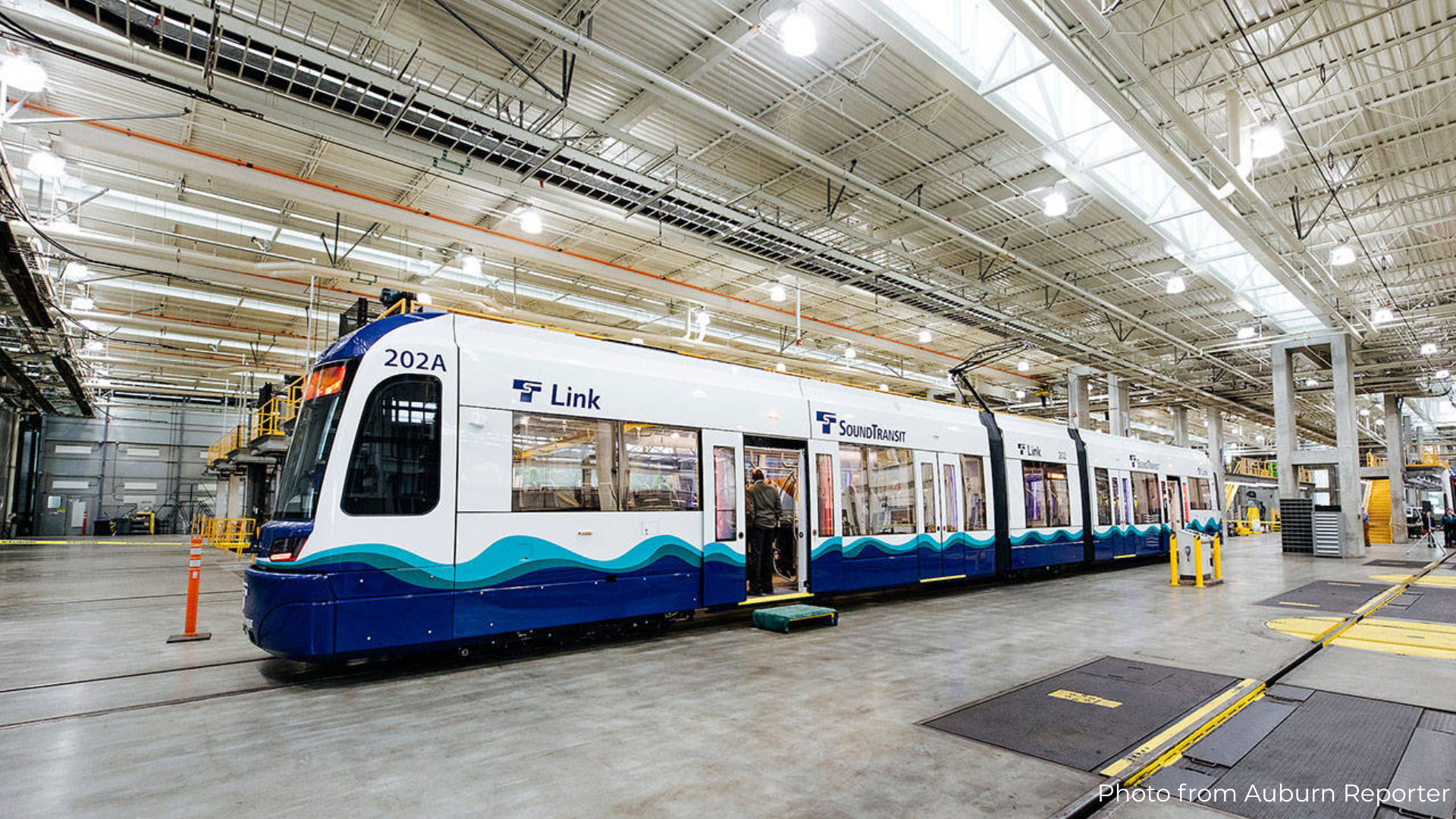The state Supreme Court has overturned Initiative 976, which was approved by voters in 2019 to lower annual vehicle registration renewals to $30 per year. The initiative is preceded by a long, 20-year history of voters asking for $30 car tabs. It was struck down unanimously by the Supreme Court primarily on the basis that it violated the single-subject rule in the state constitution’s Article II Section 19, which forbids a bill to contain more than one subject, and requires the subject to be expressed in the title.
The court’s ruling is a final straw in what is clearly a failure of government at every level in respecting voters – the legislative branch to start – followed by the initiative process, the Supreme Court, the office of the Governor, the office of the Attorney General, and of course – Sound Transit.
Legislature
First, the legislature granted Sound Transit authority to tax and collect motor vehicle excise taxes (MVET) using an outdated depreciation schedule. To be sure, lawmakers were misled by Sound Transit in 2015 when Sound Transit officials repeatedly said they were seeking $15 billion in “full” taxing authority, which would be more than enough to cover the expansion they wanted. The Sound Transit 3 package on November 2016 ballots had ballooned to a $54 billion plan.
After the passage of Sound Transit 3, voters were shocked to learn their car tabs were higher than what Sound Transit suggested they would be, because the agency uses an outdated vehicle depreciation schedule that allows them to inflate the value of vehicles to collect maximum tax revenue from citizens. People were right to be outraged, and lawmakers were right to step up to try to fix this mistake.
Senator Steve O’Ban (R-Lakewood) proposed multiple bills year after year to try to fix this problem, but the bills were never moved. Democrats proposed legislation as well, but most of it was watered down and protected Sound Transit rather than taxpayers.
There was a near-solution in 2020 in the form of Senate Bill 6606, sponsored by Senator Marko Liias (D-Lynnwood), which would have replaced the unfair vehicle depreciation schedule Sound Transit currently uses with a newer schedule in state law that runs fairly close to Kelley Blue Book values. The legislation had some serious problems, however, including offsets to help Sound Transit without any retroactive refunds to people for tax overcharges they have paid since 2017. It also provided some guaranteed car tab relief but not all the relief voted for in I-976, and eliminated parts of I-976 as a hedge. These problems could have been fixed through bipartisan collaboration and amendments, and the bill could have been passed.
Yet, because of partisan politics, Democrats and Republicans did not come to any agreement in 2017, 2018, 2019, or 2020. Meanwhile, taxpayers continued paying high car tab tax overcharges.
Initiative
This set the stage for Tim Eyman to run Initiative 976 in 2019. The initiative included several provisions, some of which represented good policy and some of which did not. As Eyman’s previous initiatives were challenged and struck down by the court, there was some concern that this, too, would face a similar outcome.
Rather than taking up legislation from Senator O’Ban or Senator Liias, which had already been vetted by committees, Eyman chose to run I-976, which included a controversial provision that Sound Transit defease (or retire early) its bonds that are backed by MVET revenue, conditioned on the agency’s ability to do so. This was done likely to comply with a previous legal decision made in Pierce County II, which held that Initiative 776 “unconstitutionally impaired contracts between Sound Transit and its bondholders by limiting MVETs that Sound Transit could collect.” To get around this, I-976 attempted to tackle the bond contracts directly in order to lower the MVET.
It is important to remember that Initiative 776 was first overturned at the superior court level based on the single-subject rule, including sections that mentioned Sound Transit’s bond contracts, but this was later reversed by the state Supreme Court. Although the Supreme Court reversed the previous decision and upheld the initiative, the court later partially invalidated the initiative on the basis that it impaired contracts.
Thus, it is understandable why Eyman may have thought single-subject would not be an issue with I-976 (especially since the King County Superior Court, when considering I-976 earlier this year, ruled that it did not violate the single-subject rule).
Still, past experience with courts scrutinizing language regarding bond contracts should have been a clear indicator that a new approach was needed to address Sound Transit’s MVET in a more defensible and bulletproof way.
Instead, Eyman ignored better options, including legislation from lawmakers that addressed defeasement of bonds by placing restrictions on the Department of Licensing’s ability to collect the tax for Sound Transit, and therefore not directly impinging on Sound Transit’s bond contracts. The decision to keep I-976 as it was turned out to be a mistake.
Supreme Court
In its opinion overturning I-976, the court’s decision surprisingly didn’t hinge on the impairment of contracts as it did in I-776, but instead argued that Section 12 of the bill (the language regarding Sound Transit defeasing bonds) rendered the law unconstitutional because it violated the single-subject rule by creating a separate subject from the main subject of the initiative (“limiting vehicle taxes and fees”). The court found that the provision requiring Sound Transit to retire, defease or refinance bonds “is not germane to limiting vehicle taxes and fees” and thus “is an unconstitutional second subject.”
In contrast, the Attorney General’s office, in defending the initiative, argued that the provision is germane to limiting vehicle taxes and fees because it ensures that the MVET, which is a type of vehicle tax, can no longer be collected.
The court’s ruling on this is bizarre and seems inconsistent with how they ruled in Pierce II, when single-subject didn’t appear to be an issue. Instead, the justices somehow arrived at the conclusion that defeasing bonds that rely on a revenue source that the initiative is trying to repeal is unrelated to repealing revenue.
To add insult to injury, the court included a statement that though the initiative passed statewide with about 53 percent of the vote, “it was rejected by about 53 percent of the voters in the Sound Transit region, about 60 percent of King County voters, and about 70 percent of San Juan voters.” In reality, 46 percent of the initiative’s fiscal impact was on Sound Transit, 8 percent was on local transportation benefit districts across the state, and the rest of the impact was to state transportation accounts residents across Washington pay into. To isolate votes in Sound Transit’s taxing district or in King County suggests those votes matter more than those made by residents in Eastern Washington or elsewhere. For the court to effectively validate that line of reasoning is absurd and wrong.
The court’s ruling on this and past car tab initiatives appears to have one major implication. Once a government body receives authority to create revenue and bonds it, the public is forever stuck with that revenue source. It can be raised, but it can never be lowered again. Once the revenue is bonded, there is nothing the legislature or the people through initiative can do to require defeasement of bonds to lower the revenue. All the state or local government entity has to do is initiate a tax and issue bonds – and that tax can never be lowered as long as bonds are outstanding.
Office of the Governor
The Governor has not shown any decisive leadership on this issue over the years it has been publicly debated. This includes his decision to not provide car tab relief during the COVID-19 emergency, while providing economic relief elsewhere. When asked by reporters if he would consider providing car tab relief, the Governor said he would give it some thought, but ultimately the issue was brushed aside without any real policy analysis of the impact this relief could have for families.
When Initiative 976 was struck down, Governor Inslee said he was “open to changes on the state’s portion of car tabs” but has not indicated any support for a special session to carry out the will of voters. In contrast, when Initiative 695 was struck down in 2000, Governor Locke called a news conference within hours of the ruling, “demanding the legislature act in special session to remove any doubt in voters’ minds” that their will would not be carried out.
Rather than making empty statements, Governor Inslee should be clear and honest about what he will or won’t do so people are not left wondering.
Attorney General
To their credit, the legal team from the Office of the Attorney General (AG) provided a solid defense of Initiative 976, including arguing that Sound Transit defeasing bonds is rationally tied to main subject of the initiative. Where the AG could have done a better job is in adding defeasement of bonds to the ballot summary, which said “this measure would repeal, reduce, or remove authority to impose certain vehicle taxes and fees; limit annual motor-vehicle-license fees to $30, except voter-approved charges; and base vehicle taxes on Kelley Blue Book value.” Although the court did not ultimately base its decision on the ballot summary (separate from the ballot title), it was the subject of hot debate during oral argument and could have formed another basis for the court to strike down the initiative.
Sound Transit
Sound Transit has always had the ability to be fair and honest, and to correct car tab overcharges on their own. The agency has chosen to ignore public outcry because it benefits from the unfair overvaluation. When confronted in a separate class action lawsuit about their unfair use of a depreciation schedule that they are not legally authorized to use – Sound Transit simply said it didn’t matter. It didn’t matter how the law was written, or how the tax is assessed, or whether the public can verify how the tax is paid.
Sound Transit’s conduct over the years has shown the agency feels it is above the law. Rather than admitting error and working to restore public trust, Sound Transit has dug in its heels, refusing to be accountable to the public. There is no doubt that agency officials carry enormous responsibility for the car tab mess everyone has had to deal with over the years, the brunt of it falling on working families in the Puget Sound region.
Conclusion
Mark Twain is purported to have said that “history doesn’t repeat itself, but it rhymes.” The ruling today is extremely disappointing and indicative of a much larger, systemic problem. The people, who are supposed to be in charge, do not want to pay high car tabs and have said so repeatedly - yet no one in government will allow their will to be enacted.
As we are being told every five minutes that our votes and elections matter – it is incumbent upon elected officials to demonstrate that they believe this to be true. To prevent further erosion of public trust, it is critical that the Governor call the legislature into special session at this time to discuss how to implement the will of voters as expressed in Initiative 976.
Mariya Frost is the Transportation Director at the Coles Center for Transportation at Washington Policy Center, an independent research organization with offices in Seattle, Olympia, Spokane and the Tri-Cities.






